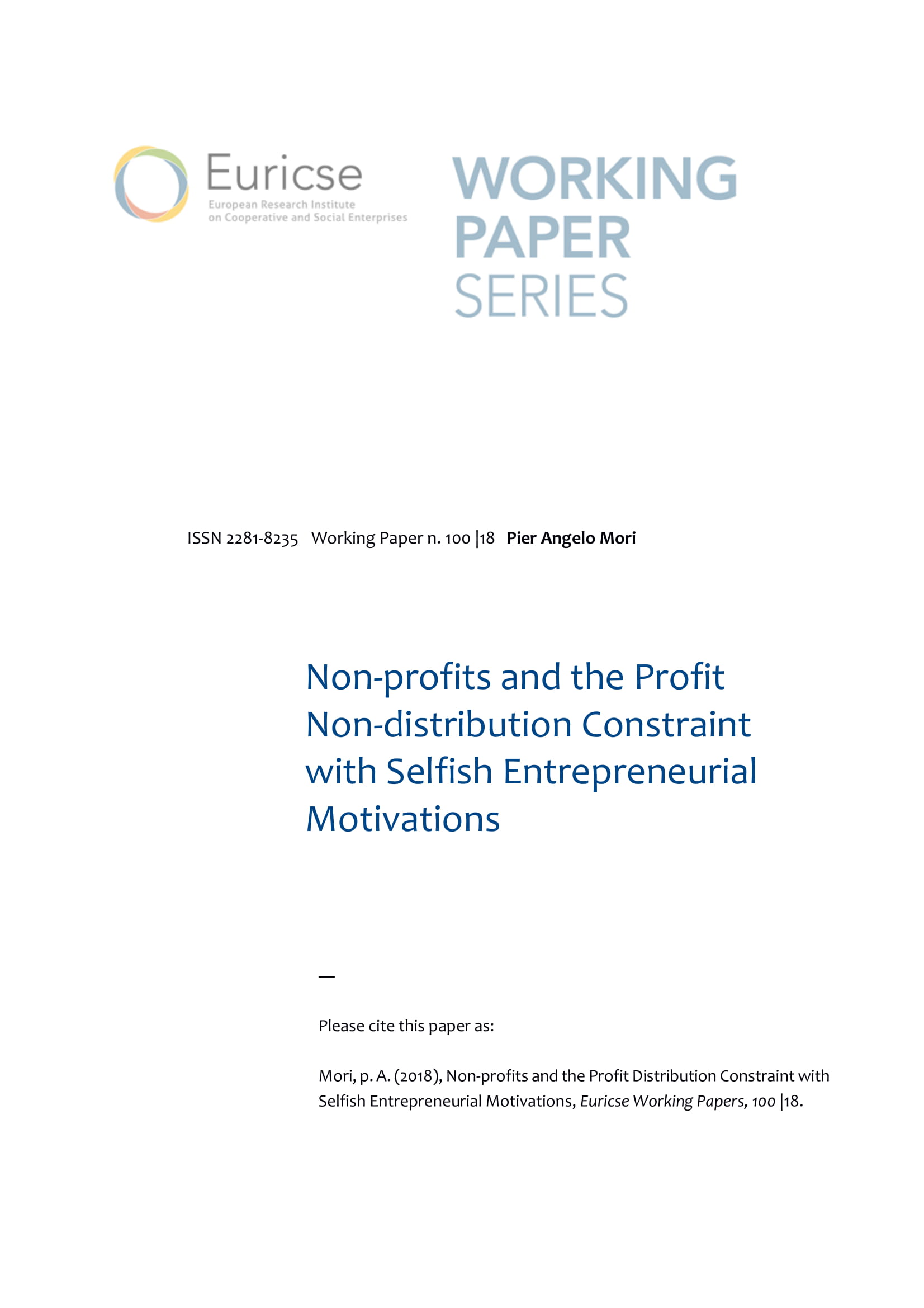WP 100 | 18 Non-profits and the Profit Non-distribution Constraint with Selfish Entrepreneurial Motivations
The profit non-distribution constraint (NDC) is the basic requirement for non-profit tax privileges all over the world. In donative non-profits it is justified by the need to prevent donors’ exploitation by firm owners. Donative non-profits, however, are not the only type of third-sector institution and in many of them the chief stakeholders are customers, not donors. In this paper we investigate the social value of the NDC in mutual non-profits where customers exert control over the firm. The main theme here is the exploitation of some customers by others, rather than the exploitation of donors by managers or owners. When customers are homogeneous, the NDC can never be beneficial. More complex is the case of customer heterogeneity. We show that in this case the NDC presents three issues. First, there are cases where intra-member exploitation occurs through the generation of accounting losses, and in such cases the NDC is ineffective from an allocative standpoint. Second, even when it prevents exploitation, the resulting allocations may be socially inferior to those that obtain in the presence of minority exploitation. We further show that non-members’ exploitation is of the same nature as minority members’ exploitation and it is just a variant of it, whereby the same results on the NDC’s effectiveness qualitatively hold in this case too. The upshot is that granting tax relief to all mutual non-profits adopting the NDC is unwarranted and a selective application of tax incentives based on the governance structure is instead needed.

